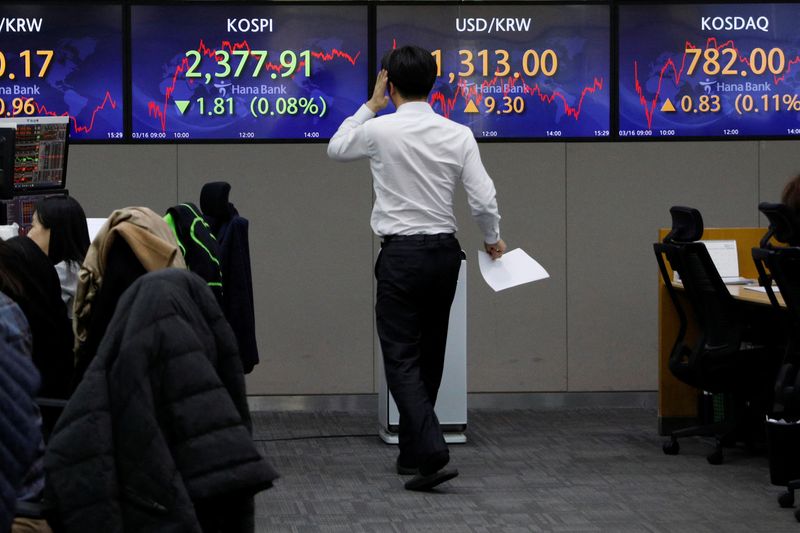SEOUL (Reuters) -South Korea's financial market watchdog said on Thursday it was checking the effectiveness of a new monitoring system designed to detect illegal short-selling of domestic stocks before lifting a ban on such trades.
South Korea's Capital Markets Act bans 'naked' short-selling of stocks, in which an investor sells shares without first borrowing them or determining they can be borrowed.
The new system will electronically process all short-selling transactions by institutional investors and filter them through a central detection system set up at the stock exchange operator, the Financial Supervisory Service (FSS) said."Illegal short selling has been one of the major factors behind the 'Korea discount', by undermining market credibility among domestic investors," its governor, Lee Bok-hyun, said in remarks prepared for delivery on Thursday.
South Korea's reforms aim to resolve the so-called "Korea discount", which refers to domestic companies' lower valuations than global peers stemming from factors such as low dividend payouts and opaque governance structures.
"With this double-layered checking system working properly, we hope it will root out illegal short selling," Lee said in the statement, issued ahead of an event to explain the new system to market experts and retail investors.
The regulator added that adoption of the new system would follow swift final checks, but did not give a date.
The ban on short selling of shares runs through the first half of this year since authorities imposed it suddenly last November after finding illegal trades by several foreign investment banks.
Financial authorities have since said the ban will stay until adequate prevention measures are adopted.
It was difficult to say when the ban would be lifted as authorities need to see how long it takes to implement the new mechanism and if it will be sufficient, Lee said in response to a query.

Most institutional and foreign investors agreed on the need to restore confidence of domestic retail investors by adopting the electronic system, even if they incur costs, he added.
To promote a level playing-field, South Korea also wants to loosen short-selling rules for retail investors, and fix a new borrowing limit for institutional and foreign investors once the ban is lifted.